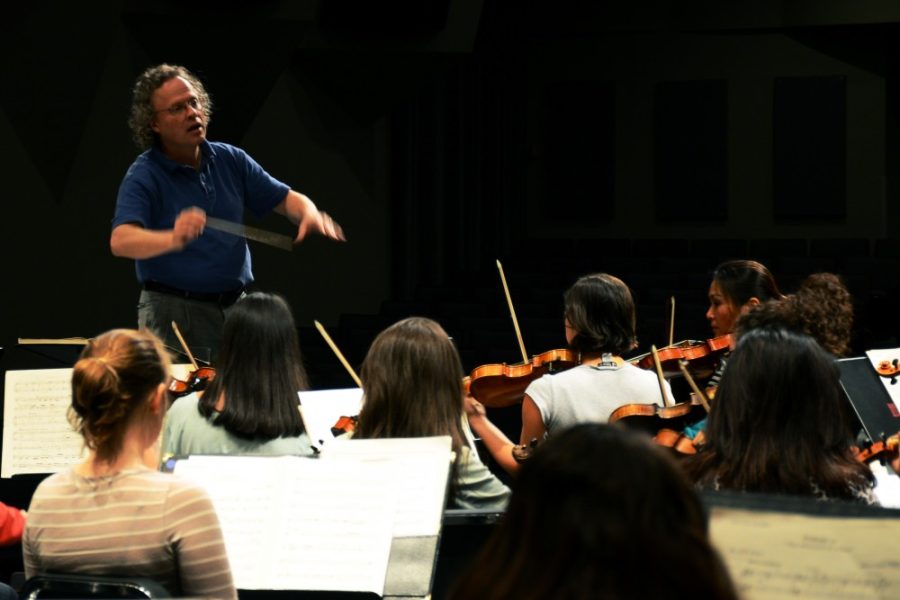The Arizona Symphony Orchestra is set to prove that some musical pieces transcend time during its concert this Saturday night.
The two pieces on the program, Pyotr Ilyich Tchaikovsky’s Symphony No. 5 and Claude Debussy’s “Prélude à ‘L’après-midi d’un faune,’” are both timeless masterpieces in their own right, remaining as masterful and eloquent as when they were first composed.
“The works on the program are two monuments of the orchestral repertoire,” conductor Thomas Cockrell said. “Both are great crowd-pleasers.”
Cockrell has been the director of the James E. Rogers Institute for Orchestral and Opera Conducting since it was established in 2007, as well as the director of the UA Opera Theater since 2000. Through his command, these pieces will once again come to life, more than a century after they were first written.
Tchaikovsky’s Symphony No. 5, originally composed in 1888, runs about 50 minutes in length. It follows the classic four-movement style, leading the listener on an emotional “fate-themed” journey, as many music commentators describe it. It progresses from ominous beginnings to an exultant culmination in the final movement.
“The symphonies of Tchaikovsky are red-blooded examples of musical Romanticism at its best,” Cockrell said. “The Fifth is keenly passionate, taking the listener on a journey from foreboding to triumph.”
A full spectrum of instruments will be on display for Symphony No. 5, with the score calling for three flutes, two oboes, two clarinets, two bassoons, four horns, two trumpets, three trombones, a tuba, timpani and strings.
Debussy’s “Prélude à ‘L’après-midi d’un faune,’” or “Prelude to ‘The Afternoon of a Faun,’” runs around 10 minutes. The piece, which was first performed in 1894, was inspired by the poem “L’après-midi d’un faune” by French symbolist poet Stéphane Mallarmé, written in 1876.
Mallarmé’s poem describes a faun who, alone in the forest, is awoken by passing nymphs and, despite attempts to pursue them, ultimately falls back into a dream-filled slumber. Debussy’s musical rendition of the poem helped create a lasting element of modernity in classical music.
“Debussy’s ‘Prelude to “The Afternoon of a Faun”’ is a work that ushers in the modern in classic music in 1895,” Cockrell said. “The composer creates a magical and evocative musical atmosphere.”









